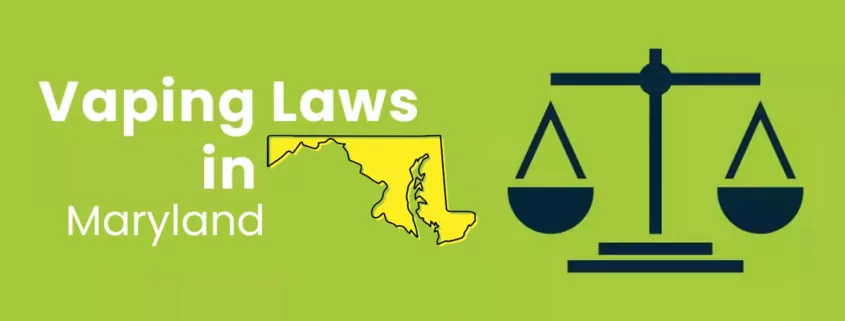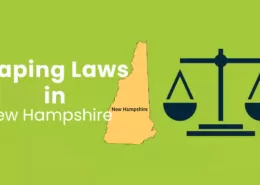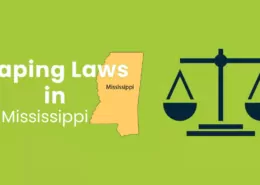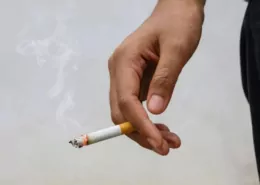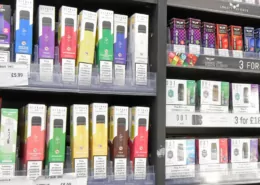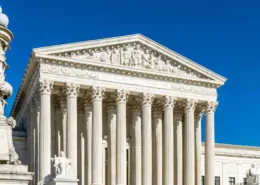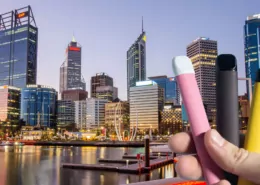Vaping Laws in Maryland – Age, Flavors Ban, Tax & Rules
Maryland has firmly positioned itself as a state with some of the most comprehensive and stringent vaping regulations in the United States. Driven by a strong commitment to public health, particularly the prevention of youth access to nicotine and the desire to maintain clean air standards, the Old Line State has implemented a multi-layered system of laws that have significantly transformed the vaping landscape, especially following major legislative changes in 2024 and 2025. This framework combines strict age restrictions, a broad ban on flavored e-cigarettes, comprehensive public use prohibitions, aggressive taxation policies, and detailed retailer responsibilities.
As of 2025, understanding these multifaceted regulations is crucial for consumers, retailers, and manufacturers. This guide provides an in-depth look at Maryland’s current vaping laws, incorporating recent legislative updates and authoritative sources to help you navigate this tightly regulated environment with clarity and ensure compliance.
The Legal Foundation of Vaping Laws in Maryland
At the core of Maryland’s approach to vaping is a clear legal definition that brings these products under tobacco control measures, alongside unwavering age limits for purchase and possession.
Defining “Electronic Smoking Device” and “Tobacco Product”
Maryland law provides clear definitions in Md. Code Ann., Bus. Reg. § 16.7-101(c) (2025) to ensure comprehensive regulatory coverage. An “electronic smoking device” (ESD) is defined as “a device that can be used to deliver aerosolized or vaporized nicotine to an individual inhaling from the device.” This broad definition includes electronic cigarettes, electronic cigars, electronic cigarillos, electronic pipes, electronic hookah, vape pens, and vaping liquid, as well as any component, part, or accessory of such devices, whether sold separately or not. The state’s definition of “tobacco product” encompasses any product “intended for human inhalation, absorption, ingestion, smoking, heating, chewing, dissolving, or any other manner of consumption that is made of, derived from, or contains tobacco or nicotine”. This classification is crucial as it subjects vaping products to all applicable tobacco laws in Maryland.
Minimum Legal Sales Age: Strictly 21, Military Exception Eliminated
Maryland rigidly enforces a minimum legal sales age of 21 for all tobacco products, which explicitly includes e-cigarettes, vapor products, and all related components and accessories. This “Tobacco 21” standard aligns Maryland with federal legislation. A significant update occurred in October 2024, when Maryland eliminated the previous exemption for active-duty military personnel aged 18-20. This means the 21+ age limit now applies universally within the state, without exceptions.
Retailers are legally mandated to verify the age of any purchaser appearing to be under 30 years old by checking a valid government-issued photographic identification, such as a driver’s license, state ID, military ID, passport, or immigration card. Selling, distributing, or offering for sale e-cigarettes or related products to individuals under 21 is a serious offense. Penalties for retailers are substantial and escalate with subsequent violations within a two-year period:
- First violation: $500 fine.
- Second violation within two years: $1,000 fine and/or a 90-day license suspension.
- Third and subsequent violations within two years: $3,000 fine and/or a 180-day license suspension or permanent license revocation.
Under Maryland law, the tobacco retailer (business owner) is responsible for paying civil penalties issued to store clerks who make illegal sales to underage individuals. Criminal penalties can also apply, potentially reaching $1,000 fines and 90 days imprisonment for each day of violation.
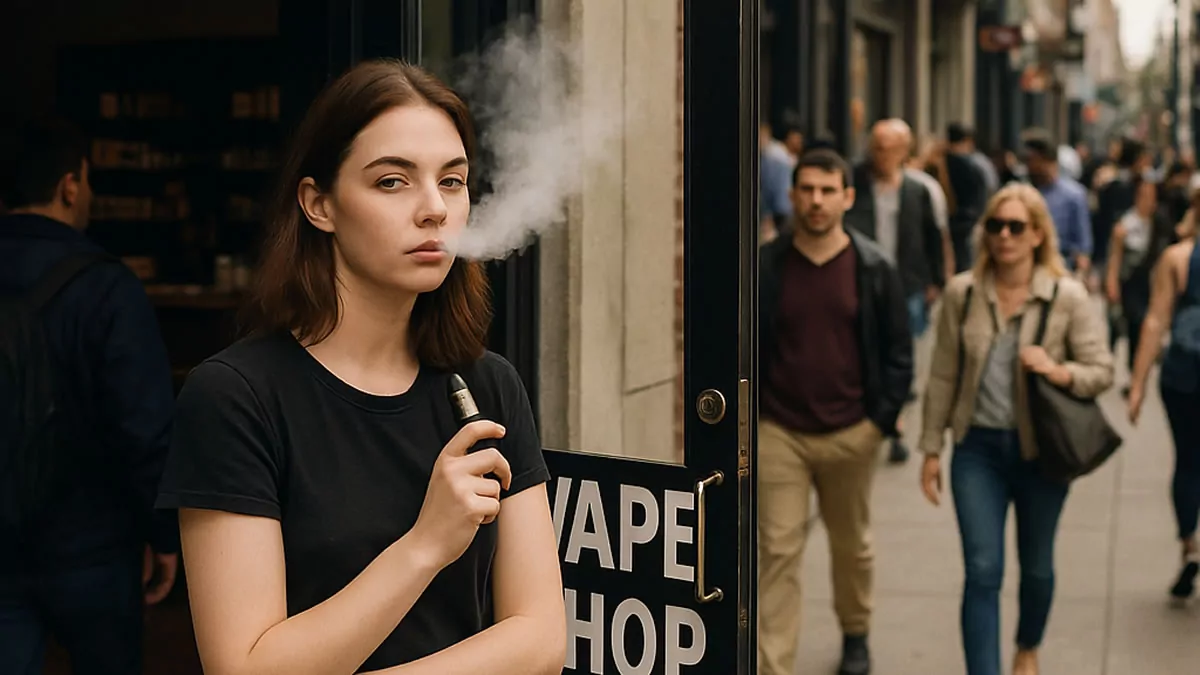
Where Vaping is Prohibited in Maryland
Maryland has taken significant steps to protect its residents from secondhand aerosol exposure by extending its clean indoor air laws to comprehensively include vaping products.
Maryland Clean Indoor Air Act: Vaping Included
A landmark change occurred with the amendment to Maryland’s Clean Indoor Air Act (CIAA), which, effective July 1, 2024, explicitly extended smoking bans to include vaping. This means that vaping is prohibited in virtually all indoor public places and places of employment where traditional smoking is also banned. This comprehensive ban includes, but is not limited to:
- Public meeting places.
- Public vehicles (e.g., buses, trains).
- Indoor places of employment (workplaces).
- Restaurants and bars.
- Retail stores.
- Hotels and motels (with limited exceptions for designated smoking/vaping rooms, up to 40% in some jurisdictions).
- Healthcare facilities and hospitals.
- Childcare facilities.
- Clubs with alcohol licenses.
- Elevators.
- Entertainment venues.
The law also extends to outdoor areas within 25 feet of doorways, operable windows, or air intake vents of facilities where vaping is prohibited indoors. Notably, Maryland does not exempt vape shops from these indoor use restrictions, unlike some other states.
Signage Requirements and Enforcement
Businesses are required to post “No Smoking or Vaping” signs at each public entrance to workplaces and other establishments covered by the CIAA. The Maryland Department of Health provides downloadable signs in English and Spanish to assist businesses with compliance. Enforcement of the CIAA is primarily handled by local health departments for public areas and Maryland Occupational Safety and Health (MOSH) for workplaces not open to the public. Penalties for individual violations can range from $50-$100, while businesses may face fines up to $1,000 per violation, with each day of non-compliance potentially counting as a separate offense.
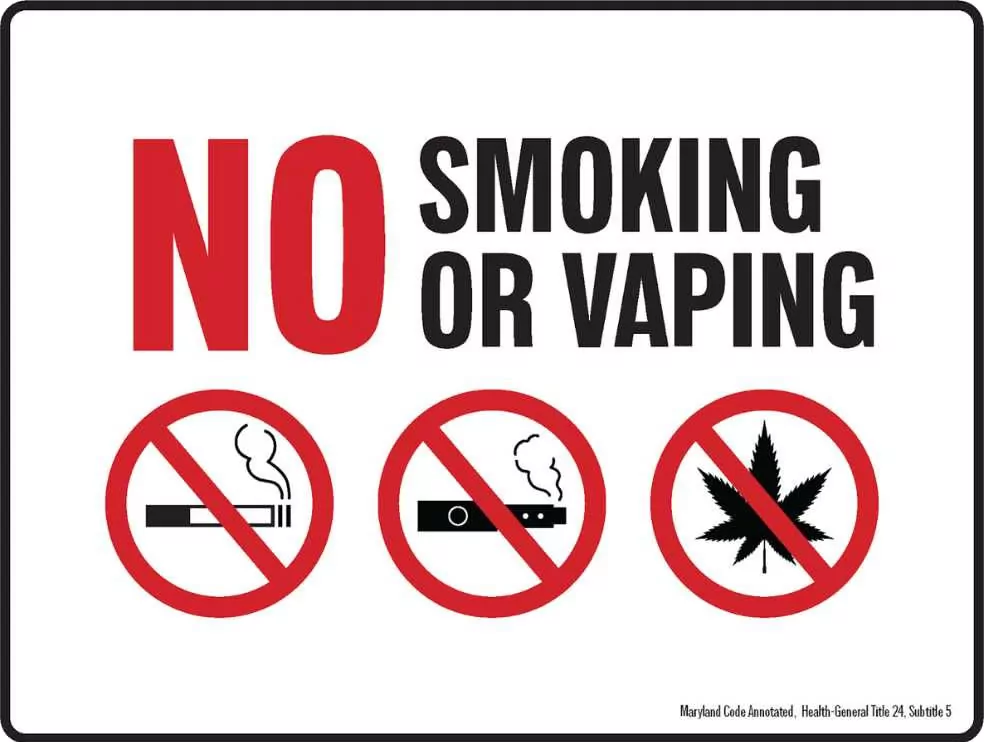
Local Variations: A Patchwork of Stricter Rules
While state law provides a strong baseline, local jurisdictions in Maryland can, and often do, impose stricter regulations on vaping. This creates a complex “patchwork” that requires attention to local ordinances(Part 1 – Local Variations):
- Montgomery County: Known for having some of Maryland’s most restrictive local laws, including a comprehensive ban on the sale of all flavored e-cigarettes (allowing only tobacco flavors) under Bill 32-19. The county also established geographic restrictions prohibiting flavored e-cigarette distribution within one mile of schools, libraries, parks, and recreational facilities, and prohibits vape shops within 0.5 miles of middle or high schools.
- Prince George’s County: Implements indoor vaping bans covering bars and restaurants but may exempt video lottery establishments. Actively pursues flavor restriction legislation.
- Baltimore City: Has a more permissive approach compared to some surrounding counties, banning vaping in most enclosed workplaces but exempting bars, restaurants, video lottery facilities, and e-cigarette shops from certain aspects of its local smoke-free law.
- Howard County & Anne Arundel County: Howard County implemented comprehensive bans covering many public and private venues early on (July 2015). Anne Arundel County generally follows state CIAA requirements and focuses on enforcement and cessation resources.
Ecigator is one of the well-known vape brands spun off from FM Technology Co., Ltd, it’s an ISO-certified disposable vape manufacturer for OEMs, ODMs, and OBM since 2010. The founder team comes from top firms with more than 10 years of experience in the vaping industry and has devoted thousands of hours to providing users with a better and better experience.
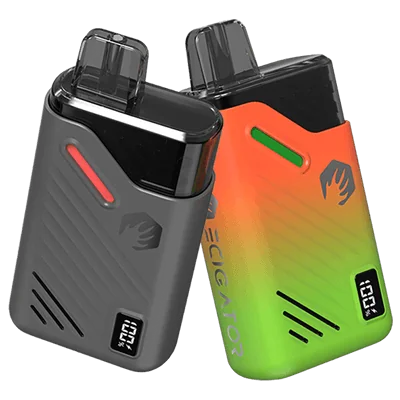
18K Disposable Pod Kit
Disposable Pod Kit – 18ml changeable pod with 650mAh rechargeable battery.
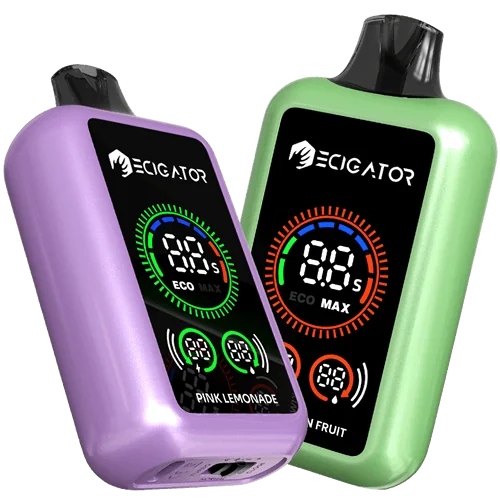
20K with Large Screen
20000 Puffs Disposable Vape with large screen. Normal and Boost working modes.
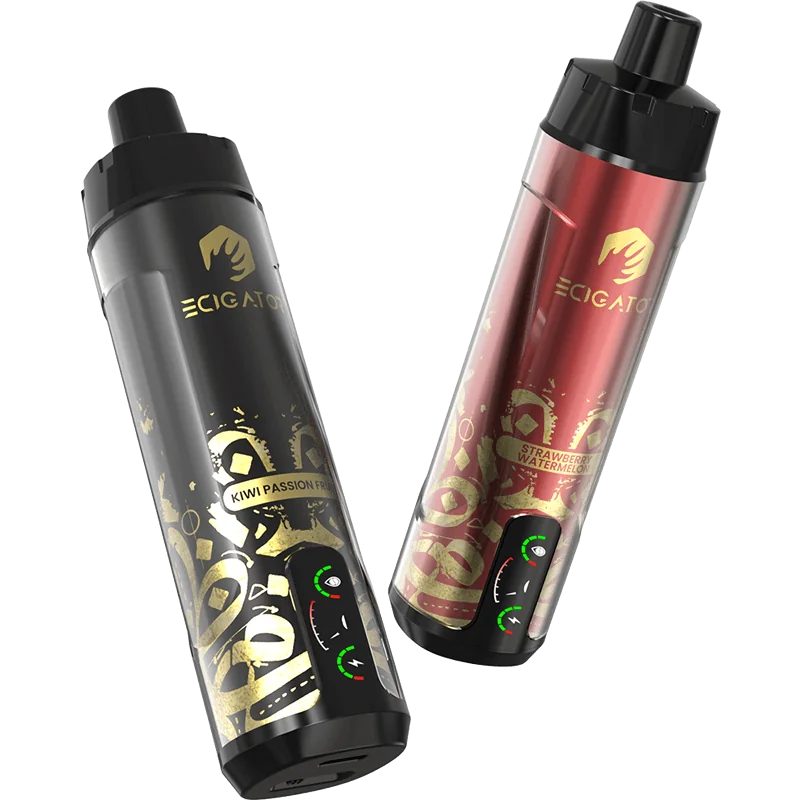
20K DTL Disposable
20K Puffs DTL(Directly to Lung) disposable vape with airflow control and screen.
Selling Vaping Products in Maryland
The sale of vaping products in Maryland is a tightly regulated activity, with specific requirements for licensing, product handling, and sales practices.
Mandatory Retailer and Vape Shop Vendor Licensing
Businesses selling electronic smoking devices in Maryland must obtain the appropriate licenses. This includes:
- An Electronic Smoking Devices Retailer License for general retailers.
- A Vape Shop Vendor License for specialized vape shops.
The annual licensing fee for an Electronic Nicotine Delivery Systems (ENDS) License is $25, with licenses requiring annual renewal (expiring April 30th). The 2024 Tobacco Retail Modernization Act increased annual licensing fees to $300 for broader retail cigarette, other tobacco products, and ESD retailer licenses, with additional revenue directed to county tobacco enforcement.
Product Handling, Display, and Sales Practices
- Behind-the-Counter Sales: Electronic smoking devices must be displayed behind counters in areas accessible only to employees. Self-service displays are prohibited except in adult-only (21+) facilities.
- Signage: Retailers must post conspicuous, state-approved signage regarding the 21+ age restriction and health warnings near points of sale.
- Online Sales and Delivery: Online retailers shipping to Maryland residents must obtain an ESD license. Stringent age verification is required, typically involving government-issued photo ID checks for all purchasers and ensuring an adult (21+) signature upon delivery. The 2024 Maryland Tobacco Modernization Act introduced additional restrictions on mail and online orders for certain product categories.
- Vending Machines: Sales through vending machines are banned unless located in areas inaccessible to those under 21.
Flavors Restriction and Safety Standards
Flavor Restrictions
Maryland has implemented significant restrictions on flavored vaping products to curb youth appeal:
- The sale of flavored e-liquids is generally restricted to adult-only venues such as licensed vape shops.
- Disposable e-cigarettes with flavors other than tobacco and menthol are banned from sale in general retail locations like convenience stores.
These state-level restrictions expand on federal FDA enforcement actions that have primarily targeted unauthorized flavored cartridge-based systems. Montgomery County has an even stricter local ban, allowing only tobacco flavors.
Packaging and Safety Standards
Maryland law requires child-resistant packaging for liquid nicotine containers, designed to be significantly difficult for children under five to open, and must include tamper-evident features and clear opening instructions. Manufacturers of ESDs must ensure their products meet standards adopted by the Secretary of Health and use appropriate packaging protocols. Retail establishments that mix e-liquids or assemble vaporizers are classified as “tobacco product manufacturers” and are subject to additional FDA regulations.
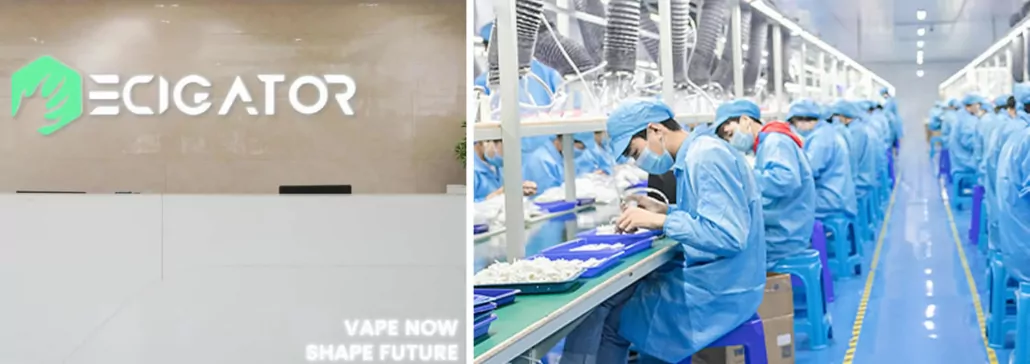
ECIGATOR
Ecigator is one of the well-known vape brands spun off from FM Technology Co., Ltd, it’s an ISO-certified disposable vape manufacturer for OEMs, ODMs, and OBM since 2010. The founder team comes from top firms with more than 10 years of experience in the vaping industry and has devoted thousands of hours to providing users with a better and better experience.
Taxation of Vaping Products in Maryland
Maryland employs a significant taxation strategy for vaping products, positioning it among the states with the highest tax burdens on these items.
- Electronic Smoking Devices (Hardware): Taxed at 20% of the retail price (increased from 12% effective July 1, 2024).
- Vaping Liquid Containers (5ml or less): Taxed at a very high rate of 60% of the retail price.
- Vaping Liquid Containers (over 5ml): Subject to the 20% retail price tax rate applicable to devices.
This ad valorem (percentage of price) system aims to discourage consumption, particularly of smaller, often disposable, high-nicotine liquid containers, and to generate revenue for public health initiatives. In 2021, Maryland generated $21.7 million in state taxes from the vaping industry. However, the high tax rates have also created significant incentives for cross-border shopping in neighboring states with lower taxes (e.g., Virginia), potentially leading to tax avoidance and illicit trade.
Conclusion
Maryland’s vaping laws in 2025 reflect a comprehensive and aggressive regulatory transformation aimed at prioritizing public health, with a strong emphasis on preventing youth access and use. The state’s approach combines some of the nation’s highest tax rates on certain vape products, universal indoor public vaping bans, strict retailer licensing and compliance systems, and significant restrictions on flavored products. The elimination of the military exemption for the 21+ age limit further solidifies its stringent stance. While these measures have earned Maryland accolades for tobacco control progress, ongoing challenges include managing potential cross-border tax avoidance, ensuring consistent enforcement across varying local ordinances (like Montgomery County’s full flavor ban versus Baltimore City’s exemptions), and adapting to the ever-evolving product landscape. For consumers, retailers, and manufacturers, navigating this complex environment requires continuous attention to both state and local regulations to ensure full compliance in the Old Line State.
References
- Maryland Department of Health – Tobacco 21 Retailer FAQ (Aug 2022)
- Maryland Department of Health – Clean Indoor Air Act
- Maryland Comptroller – Tax Alert: Cigarettes, OT, ESDs Tax Rate Changes (Effective July 1, 2024)
- Maryland General Assembly – Business Regulation § 16-3A-01 (Definitions – ESD)
- Maryland General Assembly – Business Regulation § 16.7-201 (License Required)
FAQs
-
What is the minimum legal age to buy vaping products in Maryland?
The minimum legal sales age for all tobacco products, including e-cigarettes and vapor products, is strictly 21 years old in Maryland. As of October 2024, the previous exemption for active-duty military personnel aged 18-20 was eliminated, meaning the 21+ age limit applies universally within the state.
-
Where is vaping prohibited in Maryland?
Effective July 1, 2024, Maryland’s Clean Indoor Air Act prohibits vaping in virtually all indoor public places and places of employment where traditional smoking is banned. This includes public meeting places, vehicles, workplaces, restaurants, bars, retail stores, healthcare facilities, and within 25 feet of doorways, windows, or air intake vents. Notably, Maryland does not exempt vape shops from these indoor use restrictions.
-
Are flavored e-cigarettes or vape liquids banned in Maryland?
Maryland has implemented significant restrictions on flavored vaping products. The sale of flavored e-liquids is generally restricted to adult-only venues such as licensed vape shops. Disposable e-cigarettes with flavors other than tobacco and menthol are banned from sale in general retail locations like convenience stores. It’s important to note that Montgomery County has an even stricter local ban, allowing only tobacco flavors.
-
What are the taxes on vaping products in Maryland?
Maryland employs a significant taxation strategy for vaping products. Electronic smoking devices (hardware) are taxed at 20% of the retail price (increased from 12% effective July 1, 2024). Vaping liquid containers 5ml or less are taxed at a very high rate of 60% of the retail price, while vaping liquid containers over 5ml are subject to the 20% retail price tax rate applicable to devices.
-
Do I need a license to sell vaping products in Maryland?
Yes, businesses selling electronic smoking devices in Maryland must obtain the appropriate licenses, which include an Electronic Smoking Devices Retailer License for general retailers or a Vape Shop Vendor License for specialized vape shops. The annual licensing fee for broader retail licenses increased to $300 in 2024.
- HHC Vapes: What Are They & Are They Safe? - July 31, 2025
- Cannabis and Vape Shop Workers Rank Happiest in Nation - July 31, 2025
- Richmond, VA, Restricts New Vape & Tobacco Shop Locations - July 31, 2025

